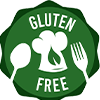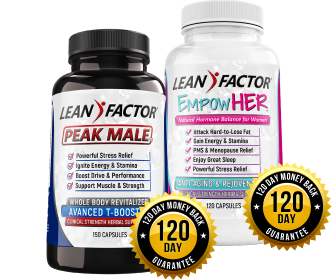Subscribe & Save + Get Free shipping on all Auto-ship Orders
Creamy Keto MCT Powder
Medium-Chain Triglycerides (MCTs), a specific type of fat, have emerged as essential nutritional energy sources, distinguishing themselves from Long-Chain Triglycerides (LCTs) in several noteworthy ways.
Unlike LCTs, MCTs are metabolized uniquely and digested more readily, thus finding themselves as a propitious component in various dietary plans.
Our MCT oil powder, when transformed into a light and creamy oil, offers not only a pleasing texture but also a multifaceted application. With its adaptable nature, it can be seamlessly integrated into a diverse array of culinary creations, such as smoothies, coffee, and salad dressings.
In clinical studies, MCTs have been identified as more ketogenic than LCTs, a property that renders them an immediate energy source for the body and ensures their efficient digestion (Schönfeld, P., & Wojtczak, L., 2016, "Short- and medium-chain fatty acids in energy metabolism: the cellular perspective," Journal of Lipid Research, 57(6), 943-954.
Suggested Use: To enhance coffee or smoothies, mix 1 - 2 tablespoons (7g - 14g) of MCT Oil powder with water. MCT Oil Powder can be mixed with sauces, salad dressings, juices, yogurt, or added to your favorite smoothie.
Mixing suggestions: To increase flavor and nutritional profile combined with our organic extra-rich cocoa powder in a smoothie.
Other Names: MCT’s, medium-chain triglycerides.
Ingredients: Medium-chain triglycerides, inulin, and sodium caseinate (a milk derivative) contains 2% or less of each of silicon dioxide and sunflower lecithin.
Allergens: Milk
Origin: Made and processed in the USA and packaged with care in Florida, USA.
How to Maintain Optimum Freshness:
This product is packaged in airtight stand-up, resealable foil pouches for optimum freshness. Once opened, push the air out of the pouch before resealing it to preserve maximum potency. Keep this product in a cool, dark, dry place.
This product is natural and minimally processed.
Taste, smell, texture, and color may vary from batch to batch. Go here to learn why our products may naturally vary.
The Important Protections we take to Bring you Safe & Nutritious Superfoods:
Please go here to discover the essential steps we take to deliver fresh, quality nutrition.
Bulk Quantities?
Need to order a large quantity of our products? We’d be happy to help! Please contact our Bulk department to discuss the details.
Sources & References
1. Bach, A. C., & Babayan, V. K. (1982). Medium-chain triglycerides: an update. The American Journal of Clinical Nutrition, 36(5), 950-962.
2. St-Onge, M. P., & Jones, P. J. (2002). Physiological effects of medium-chain triglycerides: potential agents in the prevention of obesity. The Journal of Nutrition, 132(3), 329-332.
3. Schönfeld, P., & Wojtczak, L. (2016). Short-and medium-chain fatty acids in energy metabolism: the cellular perspective. Journal of Lipid Research, 57(6), 943-954.
4. Traul, K. A., Driedger, A., Ingle, D. L., & Nakhasi, D. (2000). Review of the toxicologic properties of medium-chain triglycerides. Food and Chemical Toxicology, 38(1), 79-98.
5. Mumme, K., & Stonehouse, W. (2015). Effects of medium-chain triglycerides on weight loss and body composition: a meta-analysis of randomized controlled trials. Journal of the Academy of Nutrition and Dietetics, 115(2), 249-263.
6. Courchesne-Loyer, A., Fortier, M., Tremblay-Mercier, J., Chouinard-Watkins, R., Roy, M., Nugent, S., ... & Cunnane, S. C. (2013). Stimulation of mild, sustained ketonemia by medium-chain triacylglycerols in healthy humans: estimated potential contribution to brain energy metabolism. Nutrition, 29(4), 635-640.
7. St-Onge, M. P., & Bosarge, A. (2008). A weight-loss diet that includes consuming medium-chain triacylglycerol oil leads to a greater weight and fat mass loss rate than olive oil. The American Journal of Clinical Nutrition, 87(3), 621-626.
8. Nair, M. K. M., Joy, J., Vasudevan, P., Hinckley, L., Hoagland, T. A., & Venkitanarayanan, K. S. (2010). Antibacterial effect of caprylic acid and monocaprylin on major bacterial mastitis pathogens. Journal of Dairy Science, 93(10), 4389-4395.
9. Hoshimoto, A., Suzuki, Y., Katsuno, T., Nakajima, H., & Saito, Y. (2002). Capric acid and medium-chain triglycerides inhibit IL-8 gene transcription in Caco-2 cells: comparison with the potent histone deacetylase inhibitor trichostatin A. British Journal of Pharmacology, 136(2), 280-286.
10. Lima, A. A., & Block, L. E. (1991). Comparative resistance of the gram-negative and gram-positive bacteria to the microbicidal activity of C18 fatty acids. Journal of Food Protection, 54(12), 944-948.
11. https://www.ncbi.nlm.nih.gov/pubmed/21830350
12. https://www.ncbi.nlm.nih.gov/pmc/articles/PMC3708349/
13. https://www.livestrong.com/article/475060-benefits-of-capric-acid/
14. https://academic.oup.com/cdn/article/1/4/e000257/4555134
15. https://www.ncbi.nlm.nih.gov/pubmed/25636220
16. Papamandjaris AA, MacDougall DE, Jones PJ. Medium-chain fatty acid metabolism and energy expenditure: obesity treatment implications. Life Sci. 1998;62(14):1203-15.
17. Mumme K, Stonehouse W. Effects of medium-chain triglycerides on weight loss and body composition: a meta-analysis of randomized controller trials. J AcaNutr Diet. 2015;115(2):249-63.
18. Eyres L, Eyres MF, Chisholm A, et al. Coconut oil consumption and cardiovascular risk factors in humans. Nutr Rev. 2016;74(4):267-80.
19. Reger MA, Henderson ST, Hale C, et al. Effects of beta-hydroxybutyrate on cognition in memory-impaired adults. Neurobiol Aging. 2004;25(3):311-4.
20. Martin K, Jackson CF, Levy RG, et al. Ketogenic diet and other dietary treatments for epilepsy. Cochrane Database Syst Rev. 2016;2:CD001903.
21. Neal EG, Chaffe H, Schwartz RH, et al. A randomized trial of classical and medium-chain triglyceride ketogenic diets in treating childhood epilepsy. Epilepsia. 2009;50(5):1109-17.
22. Babayan V. Medium chain length fatty acid esters and their medical and nutritional applications. J Am Oil Chem Soc. (1981)
23. Sigalet DL, Martin G. Lymphatic absorption of glucose and fatty acids as determined by direct measurement. J Pediatr Surg. (1999)
24. Sigalet DL, Winkelaar GB, Smith LJ. Determination of the medium-chain along-chain fatty acid absorption route by direct measurement in the rat. JPEN J Parenter Enteral Nutr. (1997)
25. USDA FooComposition Database Nutrient list for C6:0, C8:0, and anC10:0.
26. Bach AC, Babayan VK. Medium-chain triglycerides: an update. Am J Clin Nutr. (1982)
27. Ghosh S, Bhattacharyya DK. Medium-chain fatty acid-rich glycerides by chemical lipase-catalyzed polyester-monoester interchange reaction. J Amer Oil Chem Soc. (1997)
28. Mu H, PorsgaarT. The metabolism of structured triacylglycerols. Prog LipiRes. (2005)
29. Mansbach CM 2nd, Gorelick F. Development and physiological regulation of intestinal lipid absorption. II. Dietary lipid absorption, complex lipid synthesis, intracellular packaging, and chylomicrons’ secretion. Am J Physiol Gastrointest Liver Physiol. (2007)
30. McLaughlin J, et al. Fatty acid chain length determines cholecystokinin secretion and affects human gastric motility. Gastroenterology. (1999)
31. Symersky T, et al. The effect of equicaloric medium-chain along-chain triglycerides on pancreas enzyme secretion. Clin Physiol Funct Imaging. (2002)
32. You YQ et al. Effects of medium-chain triglycerides, long-chain triglycerides, or 2-monododecanoin on fatty acid composition in the portal vein, intestinal lymph, and systemic circulation in rats. JPEN J Parenter Enteral Nutr. (2008)
33. Iber FL. Relative rates of metabolism MCT, LCT, an ethanol in man. Z Ernahrungswiss Suppl. (1974)
34. Borel P, et al. Chylomicron beta-carotene retinyl palmitate responses are dramatically diminished when men ingest beta-carotene with medium-chain rather than long-chain triglycerides. J Nutr. (1998)
35. Swift LL, et al. Medium-chain fatty acids: evidence for incorporation into chylomicron triglycerides in humans. Am J Clin Nutr. (1990)
36. Rubio-Gozalbo ME, et al. Carnitine-acylcarnitine translocase deficiency, clinical, biochemical, and genetic aspects. Mol Aspects Med. (2004)
37. Bach A, Phan T, Metais P. Effect of the fatty acid composition of ingested fats on rat liver intermediary metabolism. Horm Metab Res. (1976)
38. Bach A. Oxaloacetate deficiency in MCT-induced ketogenesis. Arch Int Physiol Biochim. (1978)
39. McGarry JD, Foster DW. Regulation of hepatic fatty acid oxidation and ketone body production. Annu Rev Biochem. (1980)
40. Yeh YY, Zee P. Relation of ketosis to metabolic changes induced by acute medium-chain triglyceride feeding in rats. J Nutr. (1976)
41. Bach A, et al. Ketogenic response to medium-chain triglyceride login the rat. J Nutr. (1977)
42. McGarry JD, Foster DW. The regulation of ketogenesis from octanoic acid. The role of the tricarboxylic acid cycle in fatty acid synthesis. J Biol Chem. (1971)
43. Vandenberghe C, et al. Tricaprylin alone increases plasma ketone response more than coconut oil or other medium-chain triglycerides: an acute crossover study in healthy adults. Curr Dev Nutr. (2017)
44. Adkison KD, Shen DD. A medium-chain fatty acid transporter mediates valproic acid’s uptake into the rat brain. J Pharmacol Exp Ther. (1996)
45. Chang P, et al. Seizure control by decanoic through direct AMPA receptor inhibition. Brain. (2016)
46. Van Wymelbeke V, Louis-Sylvestre J, Fantino M. Substrate oxidation control of food intake in men after a fat-substitute meal compared with meals supplemented an isoenergetic lot of carbohydrate, long-chain triacylglycerols, or medium-chain triacylglycerols. Am J Clin Nutr. (2001)
47. Rolls BJ, et al. Food intake in dieters annon dieters after a liquid meal containing medium-chain triglycerides. Am J Clin Nutr. (1988)
48. St-Onge MP, et al. Impact of medium and long-chain triglyceride consumption on overweight men’s appetite info intake. Eur J Clin Nutr. (2014)
49. Van Wymelbeke V, et al. Influence of medium-chain along-chain triacylglycerols on food intake control in men. Am J Clin Nutr. (1998)
50. Stubbs RJ, Harbron CG. Covert manipulation of the medium- to long-chain triglyceride ratio in energetically dense diets: effect on food intake in album-feeding men. Int J Obes Relat Metab Disord. (1996)
51. Krotkiewski M. Value of VLCsupplementation with medium-chain triglycerides. Int J Obes Relat Metab Disord. (2001)
52. d Han JR, et al. Effects of dietary medium-chain triglyceride on weight loss and insulin sensitivity in a group of moderately overweight free-living type 2 diabetic Chinese subjects. Metabolism. (2007)
53. Martin K, et al. Ketogenic diet and other dietary treatments for epilepsy. Cochrane Database Syst Rev. (2016)
54. Lima PA, Sampaio LP, Damasceno NR. Neurobiochemical mechanisms of a ketogenic diet in refractory epilepsy. Clinics (Sao Paulo). (2014)
55. Masino SA, Rho JM. Mechanisms of Ketogenic Diet Action.
56. Groleau V, et al. The long-term impact of the ketogenic diet on growth arresting energy expenditure in children with intractable epilepsy. Dev MeChilNeurol. (2014)
57. Bergqvist AG, et al. Progressive bone mineral content loss in children with intractable epilepsy treated with the ketogenic diet. Am J Clin Nutr. (2008)
58. Huttenlocher PR, Wilbourn AJ, Signore JM. Medium-chain triglycerides as a therapy for intractable childhood epilepsy. Neurology. (1971)
59. Huttenlocher PR. Ketonemia and seizures: metabolic anticonvulsant effects of two ketogenic diets in childhood epilepsy. Pediatr Res. (1976)
60. Trauner DA. Medium-chain triglyceride (MCT) diet in intractable seizure disorders. Neurology. (1985)
61. Sills MA, et al. The medium-chain triglyceride diet intractable epilepsy. Arch Dis Child. (1986)
62. Schwartz RH, et al. Ketogenic diets in treating epilepsy: short-term clinical effects. Dev MeChilNeurol. (1989)
63. Schwartz RM, Boyes S, Aynsley-Green A. Metabolic effects of three ketogenic diets in treating severe epilepsy. Dev MeChilNeurol. (1989)
64. Liu YM. Medium-chain triglyceride (MCT) ketogenic therapy. Epilepsia. (2008)
65. Liu YM, Wang HS. Medium-chain triglyceride ketogenic diet effective treatment for drug-resistant epilepsy and comparison with other ketogenic diets. Biome J. (2013)
66. Neal EG, et al. Growth of children on classical and medium-chain triglyceride ketogenic diets. Pediatrics. (2008)
67. d Neal EG, et al. A randomized trial of classical and medium-chain triglyceride ketogenic diets in treating childhood epilepsy. Epilepsia. (2009)
68. Azzam R, Azar NJ. MarkeSeizure Reduction after MCT Supplementation. Case Rep Neurol Med. (2013)
69. Reger MA, et al. Effects of beta-hydroxybutyrate on cognition in memory-impaired adults. Neurobiol Aging. (2004)
70. Henderson ST, et al. Study of the ketogenic agent AC-1202 in mild to moderate Alzheimer’s disease: a randomized, double-blind, placebo-controlled, multicenter trial.Nutr Metab (Lond). (2009)
71. Rebello CJ, et al. Pilot feasibility and safety study examining the effect of medium-chain triglyceride supplementation in subjects with mild cognitive impairment: A randomized controlled trial. BBA Clin. (2015)
72. Cunnane SC, et al. Can Ketones Help Rescue Brain Fuel Supply in Later Life? Implications for Cognitive Health during Aging and the Treatment of Alzheimer’s Disease. Front Mol Neurosci. (2016)
73. Tsuji H, et al. Dietary medium-chain triacylglycerols suppress body fat accumulation in a double-blind, controlled trial in healthy men and women. J Nutr. (2001)
74. Tsai YH, et al. Mechanisms mediating lipoprotein responses to diets with medium-chain triglyceride lauric acid. Lipids. (1999)
75. d Temme EH, Mensink RP, Hornstra G. Effects of medium-chain fatty acids (MCFA), myristic acid, linoleic action serum lipoproteins in healthy subjects. J LipiRes. (1997)
76. Swift LL, et al. Plasma lipids and lipoproteins during 6 of maintenance feeding with long-chain, medium-chain, mixed-chain triglycerides. Am J Clin Nutr. (1992)
77. Hill JO, et al. Changes in blood lipids during six days of overfeeding with medium or long-chain triglycerides. J LipiRes. (1990)
78. HASHIM SA, ARTEAGA A, VAN ITALIE TB. Effect of a saturated medium-chain triglyceride on serum-lipids in man. Lancet. (1960)
79. St-Onge MP, et al. Medium-chain triglyceride oil consumption as part of a weight-loss diet does not lead to an adverse metabolic profile compared to olive oil. J Am Coll Nutr. (2008)
80. Tremblay AJ, et al. Dietary medium-chain triglyceride supplementation does not affect apolipoprotein B-48 apolipoprotein B-100 kinetics in insulin-resistant men. Am J Clin Nutr. (2014)
81. van Schalkwijk DB, et al. Dietary medium-chain fatty acid supplementation reduces LDL lipolysis and uptake rates compared to linoleic acid supplementation.PLoS One. (2014)
82. Turkenkopf IJ, Maggio CA, GreenwooMR. Effect of high-fat weanling diets containing either medium-chain triglycerides or long-chain triglycerides on obesity in the Zucker rat. J Nutr. (1982)
83. Kasai M, et al. Effect of dietary medium- along-chain triacylglycerols (MLCT) on the accumulation of body fat in healthy humans. Asia Pac J Clin Nutr. (2003)
84. Xue C, et al. Consumption of medium- and long-chain triacylglycerols decrease body fat and blood triglyceride in Chinese hypertriglyceridemic subjects. Eur J Clin Nutr. (2009)
85. Zhang YH, et al. Medium-along-chain fatty acid triacyl glycerol reduces body fat and serum triglyceride in overweight hypertriglyceridemic subjects. Zhonghua Yu Fang Yi Xue Za Zhi. (2009)
86. Liu Y, et al. an excellent response to oil with medium- and long-chain fatty acids in body fat and blood lipid profiles of male hypertriglyceridemic subjects. Asia Pac J Clin Nutr. (2009)
87. Barrett-Connor E. Sex differences in coronary heart disease. Why are women so superior? The 1995 Ancel Keys Lecture. Circulation. (1997)
88. Zhang Y, et al. Medium-along-chain triacylglycerols reduce body fat and blood triacyl glycerols in hyper triacylglycerol emic, overweight but not obese, Chinese individuals. Lipids. (2010)
89. Asakura L, et al. Dietary medium-chain triacylglycerol prevents the postprandial rise of plasma triacylglycerols but induces hypercholesterolemia in primary hypertriglyceridemic subjects. Am J Clin Nutr. (2000)
90. Cater NB, Heller HJ, Denke MA. Comparing the effects of medium-chain triacylglycerols, palm oil, and high oleic acid sunflower oil on plasma triacylglycerol fatty acids and lipid and lipoprotein concentrations in humans. Am J Clin Nutr. (1997)
91. UZAWA H, et al. HYPERGLYCERIDEMIA RESULTING FROM INTAKE OF MEDIUM CHAIN TRIGLYCERIDES. Am J Clin Nutr. (1964)
92. Eckel RH, et al. Dietary substitution of medium-chain triglycerides improves insulin-mediated glucose metabolism in NIDDM subjects. Diabetes. (1992)
93. Airhart S et al. A Diet Rich in Medium-Chain Fatty Acids Improves Systolic Function Alters the Lipidomic Profile in Patients With Type 2 Diabetes: A Pilot Study. J Clin Endocrinol Metab. (2016)
94. Hayes KC. Medium-chain triacylglycerols may not raise cholesterol. Am J Clin Nutr. (2000)
95. Pi-Sunyer FX, Hashim SA, Van Itallie TB. Insulin and ketone responses to ingestion of medium and long-chain triglycerides in man. Diabetes. (1969)
96. Tamir I, et al. Effects of a single oral loaf medium-chain triglyceride on man’s serum lipid and insulin levels. J LipiRes. (1968)
97. Yost TJ, et al. Dietary substitution of medium-chain triglycerides in subjects with non-insulin-dependent diabetes mellitus in an ambulatory setting: impact on glycemic control insulin-mediated glucose metabolism. J Am Coll Nutr. (1994)
98. Souza PF, Williamson DH. Feeding medium-chain triacylglycerols affects maternal lipid metabolism and pup growth in lactating rats. Br J Nutr. (1993)
99. Lieber CS, et al. The difference in hepatic metabolism of long- and medium-chain fatty acids: the role of fatty acid chain length in producing the alcoholic fatty liver. J Clin Invest. (1967)
100. Johnson RC, et al. Medium-chain-triglyceride lipid emulsion: metabolism tissue distribution. Am J Clin Nutr. (1990)
101. Watkins JB, et al. Diagnosis differentiation of fat malabsorption in children using 13C-labeled lipids: trioctanoin, triolein, palmitic acid breath tests. Gastroenterology. (1982)
102. Messages CC, Wolfram G. Medium- along-chain triglycerides labeled with 13C: a comparison of oxidation after oral or parenteral administration in humans. J Nutr. (1991)
103. Schoeller DA et al. 13C abundances of nutrients and the effect of variations in 13C isotopic abundances of test meals formulate for 13CO2 breath tests. Am J Clin Nutr. (1980)
104. Papamandjaris AA, et al. Endogenous fat oxidation during medium chain versus long-chain triglyceride feeding in healthy women. Int J Obes Relat Metab Disord. (2000)
105. Binnert C, et al. Influence of human obesity on dietary long- medium-chain triacylglycerols’ metabolic fate. Am J Clin Nutr. (1998)
106. Carnitine Palmitoyltransferase 1A Deficiency.
107. Geliebter A, et al. Overfeeding with medium-chain triglyceride diet results in diminished fat deposition. Am J Clin Nutr. (1983)
108. Dulloo AG, et al. Differential effects of high-fat diets varying in fatty acid composition on lean fat tissue deposition efficiency during weight recovery after low food intake. Metabolism. (1995)
109. Crozier G, et al. Metabolic effects induced by long-term feeding of medium-chain triglycerides in the rat. Metabolism. (1987)
110. Lavau MM, Hashim SA. Effect of medium-chain triglyceride on lipogenesis and body fat in the rat. J Nutr. (1978)
111. Papamandjaris AA, White MD, Jones PJ. Components of total energy expenditure in healthy young women are unaffected after 14 days of feeding with medium-versus long-chain triglycerides. Obes Res. (1999)
112. Roynette CE, et al. Structuremedium along chain triglycerides show short-term increases in fat oxidation but no adiposity changes in men. Nutr Metab Cardiovasc Dis. (2008)
113. Assunção ML, et al. Effects of dietary coconut oil on women’s biochemical and anthropometric profiles presenting abdominal obesity. Lipids. (2009)
114. Clegg ME. Medium-chain triglycerides promote weight loss, although they do not benefit exercise performance. Int J FooSci Nutr. (2010)
115. Does medium-chain triglyceride play an ergogenic role in endurance exercise performance?
116. Hawley JA, Brouns F, Jeukendrup A. Strategies to enhance fat utilization during exercise. Sports Med. (1998)
117. Horowitz JF, et al. Pre-exercise medium-chain triglyceride ingestion does not alter muscle glycogen use during exercise. J Appl Physiol. (2000)
118. Misell LM, et al. Chronic medium-chain triacylglycerol consumption and endurance performance in trained runners. J Sports MePhys Fitness. (2001)
119. Goedecke JH, et al. The effects of medium-chain triacylglycerol carbohydrate ingestion on ultra-endurance exercise performance. Int J Sport Nutr Exerc Metab. (2005)
120. Angus DJ, et al. Effect of carbohydrate or carbohydrate plus medium-chain triglyceride ingestion on cycling time trial performance. J Appl Physiol. (2000)
121. Kehayoglou K, et al. The effect of medium-chain triglyceride on 47 calcium absorption in patients with primary biliary cirrhosis. Gut. (1973)
122. Harrison JE, et al. Effect of medium-chain triglyceride on fecal calcium losses in pancreatic insufficiency. Clin Biochem. (1973)
123. Tandon RK, Rodgers JB Jr, Balint JA. The effects of medium-chain triglycerides in the short bowel syndrome. Increase glucose water transport. Am J Dig Dis. (1972)
124. Trail KA, et al. Review of the toxicologic properties of medium-chain triglycerides. FooChem Toxicol. (2000)
125. Nair AB, Jacob S. A simple practice guide for dose conversion between animals and humans. J Basic Clin Pharm. (2016)
126. White MD, Papamandjaris AA, Jones PJ. Enhanced postprandial energy expenditure with medium-chain fatty acid feeding is attenuated after 14 in premenopausal women. Am J Clin Nutr. (1999)
127. Bach AC, Babayan VK. Medium-chain triglycerides: an update. Am J Clin Nutr. 1982;36(5):950-62.
128. Isaacs PE, Ladas S, Forgacs IC, et al. Comparison of effects of ingested medium- along-chain triglyceride on gallbladder volume release of cholecystokinin, another gut peptide. Dig Dis Sci. 1987;32(5):481-6.
129. Symersky T, Vu MK, Frolich M, et al. The effect of equicaloric medium-chain along-chain triglycerides on pancreas enzyme secretion. Clin Physiol Funct Imaging. 2002;22(5):307-11.
130. Gropper SS. Advancenutrition human metabolism. 6th Ed. ed. Belmont, OH: Cengage Learning; 2012.
131. Limketkai BN, Zucker SD. Hyperammonemic encephalopathy caused by carnitine deficiency. J Gen Intern Med. 2008;23(2):210-3.
132. Babayan VK. Medium-chain triglycerides and structure lipids. Lipids. 1987;22(6):417-20.
133. Shea JC, Bishop MD, Parker EM, et al. An enteral therapy containing medium-chain triglycerides and hydrolyzed peptides reduces postprandial pain associated with chronic pancreatitis. Pancreatology. 2003;3(1):36-40.
134. Erskine JM, LingarCD, Sontag MK, et al. Enteral nutrition for cystic fibrosis patients: Comparing a semi-elemental a non-elemental formula. J Pediatr. 1998;132(2):265-9.
135. Sriram K, MeguiRA, MeguiMM. Nutritional support in adults with chyle leaks. Nutrition. 2016;32(2):281-6.
136. McCray S, Parrish CR. Nutritional Management of Chyle Leaks: An Update. Practical Gastroenterology. 2011;35(4):12-32.
137. Martin IC, Marinho LH, Brown AE, et al. Medium-chain triglycerides in chylous fistulae management following neck dissection. Br J Oral Maxillofac Surg. 1993;31(4):236-8.
138. Abu Hilal M, Layfield DM, Di Fabio F, et al. Postoperative chyle leak after major pancreatic resections in patients who receive enteral feed: risk factors and management options. World Surg. 2013;37(12):2918-26.
139. Zurier RB, Campbell RG, Hashim SA, et al. Use medium-chain triglyceride to manage patients with massive resection of the small intestine. N Engl J Med. 1966;274(9):490-3.
140. Jeppesen PB, Mortensen PB. A preserved colon’s influence on the absorption of medium-chain fat in patients with small bowel resection. Gut. 1998;43(4):478-83.
141. Hill JO, Peters JC, Yang D, et al. Thermogenesis in humans during overfeeding with medium-chain triglycerides. Metabolism. 1989;38(7):641-8.
142. https://www.dropanfbomb.com/blogs/articles-resources/c8-mct-oil
143. Medium-chain triglycerides (MCT) formulas in pediatric and allergological practice - https://www.ncbi.nlm.nih.gov/pmc/articles/PMC5209465/
144. Medium Chain Triglycerides enhance exercise endurance through increased mitochondrial biogenesis and metabolism. - https://www.ncbi.nlm.nih.gov/pubmed/29420554
145. Medium-chain triglyceride (MCT) ketogenic therapy - https://sci-hub.se/https://onlinelibrary.wiley.com/doi/abs/10.1111/j.1528-1167.2008.01830.x
146. MCT Oil 101 - A Review of Medium-Chain Triglycerides - https://www.healthline.com/nutrition/mct-oil-1011. Bach AC, Babayan VK. Medium-chain triglycerides: an update. Am J Clin Nutr. 1982;36(5):950-62.
147. http://www.interfat.com/product/caproic-acid/
148. https://pubchem.ncbi.nlm.nih.gov/compound/8892
149. https://www.ncbi.nlm.nih.gov/pmc/articles/PMC3492315/
150. https://academic.oup.com/cdn/article/1/4/e000257/4555134
151. https://www.ncbi.nlm.nih.gov/pmc/articles/PMC4509905/
152. https://www.ncbi.nlm.nih.gov/pmc/articles/PMC4394462/
153. Schönfeld, P., & Wojtczak, L. (2016). Short- and medium-chain fatty acids in energy metabolism: The cellular perspective. Journal of Lipid Research, 57(6), 943-954.
154. St-Onge, M. P., & Jones, P. J. (2002). Physiological effects of medium-chain triglycerides: potential agents in the prevention of obesity. The Journal of Nutrition, 132(3), 329-332.
155. Bach, A. C., & Babayan, V. K. (1982). Medium-chain triglycerides: an update. The American Journal of Clinical Nutrition, 36(5), 950-962.
156. Traul, K. A., Driedger, A., Ingle, D. L., & Nakhasi, D. (2000). Review of the toxicologic properties of medium-chain triglycerides. Food and Chemical Toxicology, 38(1), 79-98.
157. Mumme, K., & Stonehouse, W. (2015). Effects of medium-chain triglycerides on weight loss and body composition: a meta-analysis of randomized controlled trials. Journal of the Academy of Nutrition and Dietetics, 115(2), 249-263.
158. Courchesne-Loyer, A., Croteau, E., Castellano, C. A., St-Pierre, V., Hennebelle, M., & Cunnane, S. C. (2013). Inverse relationship between brain glucose and ketone metabolism in adults during short-term moderate dietary ketosis: A dual tracer quantitative positron emission tomography study. Journal of Cerebral Blood Flow & Metabolism, 33(7), 1106-1111.
159. St-Onge, M. P., & Bosarge, A. (2008). Weight-loss diet that includes consumption of medium-chain triacylglycerol oil leads to a greater rate of weight and fat mass loss than does olive oil. The American Journal of Clinical Nutrition, 87(3), 621-626.
160. Nair, M. K. M., Joy, J., Vasudevan, P., Hinckley, L., Hoagland, T. A., & Venkitanarayanan, K. S. (2010). Antibacterial effect of caprylic acid and monocaprylin on major bacterial mastitis pathogens. Journal of Dairy Science, 93(10), 4629-4634.
161. Hoshimoto, A., Suzuki, Y., Katsuno, T., Nakajima, H., & Saito, Y. (2002). Caprylic acid and medium-chain triglycerides inhibit IL-8 gene transcription in Caco-2 cells: comparison with the potent histone deacetylase inhibitor trichostatin A. British Journal of Pharmacology, 136(2), 280-286.
162. Lima, A. A., & Block, L. E. (1991). Partially hydrolyzed guar gum: clinical nutrition uses. Nutrition, 17(6), 469-473.
* Reviews & Success Stories Disclaimer
Product reviews solely reflect the views & opinions expressed by the contributors and not those of Lean Factor. Lean Factor does not verify or endorse any claims made in these reviews. Statements have not been evaluated by the FDA and are not intended to diagnose, treat, cure, or prevent any disease or health condition.




























